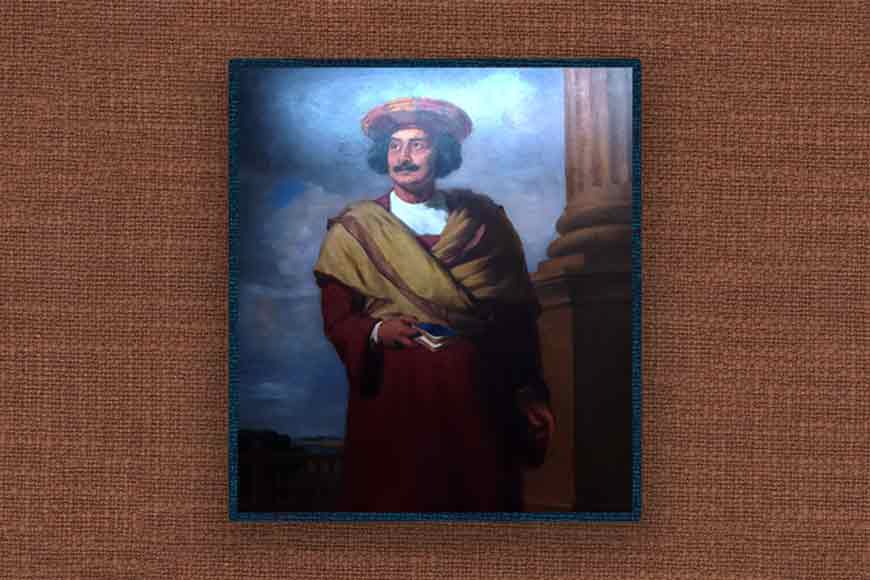On his death anniversary GB tribute to ‘Father of Indian Renaissance’

Supriya Roy is a great story-teller and retired teacher of Modern High School. She is also the great grand daughter-in-law of Sarala Ray and grand-niece of Jagadish Chandra Bose
Certain letters written by stalwarts like Rabindranath Tagore, Max Mueller and Brajendranath Seal bring out the reason why we always call Raja Rammohan Roy the father of Indian Renaissance.
On 17th May 1921, Rabindranath Tagore wrote a note to Andrews from Hamburg, explaining Rammohan’s contribution to the society at large:
“In the time of Rammohan Roy the West had come to the East with a shock that caused panic in the heart of India. The natural cry was exclusion. But this was the cry of fear, the cry of weakness, the cry of dwarf. Through the great mind of Rammohan Roy the true spirit of India asserted itself and accepted the West, not by the rejection of the soul of India, but by the comprehension of the soul of the West.”
Rabindranath Tagore
“The period in which the Raja was born and grew up was, perhaps, the darkest age in modern Indian history. An old society and polity had crumbled down, and a new one had not yet been built in its place. Devastation reigned in the land. All vital limbs of society were paralyzed; religious institutions and schools, village and home, agriculture, industry and trade, law and administration, all were in a chaotic condition. An all-round reconstitution and renovation were necessary for the continued existence of social life and order. But what was to be the principle for organization? For there were three bodies of culture, three bodies of civilizations, which were in conflict, - the Hindu, the Moslem, and the Christian or Occidental; and the question was, - how to find a rapport, of concord, of unity, amongst these heterogeneous, hostile and warring forces. The origin of Modern India lay there. The Raja by his finding of this point of concord and convergence became the Father and Patriarch of Modern India, an India with a composite nationality and a synthetic civilization; and by the lines of convergence he laid down, as well by the type of personality he developed in and through his own experiences, he pointed the way to the solution of the larger problem of international culture and civilization in human history, and became a precursor, an archetype, a prophet of coming Humanity.”
Friedrich Max Muller
“When Rammohan Roy was born in India, the darkness of a moonless night was reigning. Death was roaming in the skies…When Rammohan Roy awoke and spread his sight on Bengali society it was an abode of the spirits…At that time, only the ghost of the living ancient Hindu religion held its sway in the funeral grounds. It had no life, it had no vitality, it only had its strictures and threats…In the days of Rammohan, the tattered foundations of Hindu society, with thousands of holes filled with creatures, progressively growing from generation to generation, was bulging with the impact of age and immobility. Rammohan proceeded fearlessly to free society from the serpent-like bondage … Today even our youngsters will kick such dead serpents with a smile on the face, we will laugh them off as common field snakes without any poison – we have forgotten their enormous power, the magnetic attraction of their eyes and the dangerous embrace of their long tails. …When the Bengali students came out of Hindu College, imbibed with the new English education, a certain type of intoxication grew in them… They took the blood that oozed from the deeply injured heart of the ancient Hindu society and used it as a plaything… To them nothing was good or sacred in Hindu society, they did not even have that respect for ancient Hindu society that they should pick up its skeletons, scattered hither and thither, cremate them properly and return home with a heavy heart after sprinkling the ashes in the waters of the Ganges… Considering the conditions of the period, they cannot be blamed that much…But the man who scotched the first flames of revolutionary fire in the present Bengali society, that Rammohan Roy was not intoxicated in that manner. He observed everything, good and bad, patiently. He enlightened the dark Hindu society of those days but did not light the all-consuming fires of cremation. That was the greatness of Rammohan Roy. "
Brajendra Nath Seal









